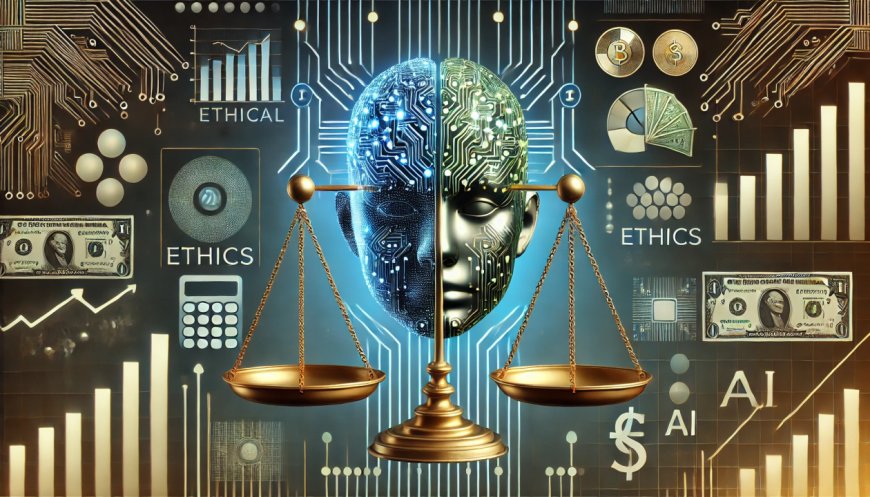Can We Trust the Code? Unpacking the Ethical Dilemma of AI Decision-Making
Can machines make fair decisions? Explore the challenges and solutions in AI ethics, from algorithmic bias to explainable AI and global regulations.

AI Ethics: Can Machines Make Fair Decisions?
From personalized recommendations to criminal sentencing tools, artificial intelligence (AI) is shaping decisions that directly impact our lives. But as AI systems gain more power, a pressing question has emerged: Can machines make fair decisions?
This isn’t just a philosophical debate—it’s a practical concern for governments, businesses, and everyday people navigating a world increasingly run by algorithms. At the heart of it lies a growing tension between technological progress and human values.
What Is AI Ethics?
AI ethics is the field of study that explores how to design, deploy, and regulate artificial intelligence in a way that aligns with core human principles like fairness, accountability, privacy, and transparency.
It asks fundamental questions:
-
Can machines truly understand fairness?
-
Who is responsible when an AI makes a harmful decision?
-
How do we prevent discrimination encoded in algorithms?
As AI becomes more embedded in our daily lives, these questions are becoming more urgent—and more difficult to answer.
Real-World Examples: Where AI Decisions Go Wrong
AI systems learn from data. But if that data is flawed or biased, the results can be deeply problematic. Here are a few high-profile cases that have sparked global debate:
1. Hiring Algorithms Discriminating Against Women
Amazon reportedly scrapped an internal AI hiring tool after it was found to downgrade résumés that included the word "women" or references to all-women colleges. Why? The algorithm was trained on ten years of resumes submitted to the company—most of which came from men.
2. Racial Bias in Facial Recognition
Studies from MIT and Stanford revealed that facial recognition systems had an error rate of up to 34% for darker-skinned women, compared to just 1% for lighter-skinned men. Despite this, such systems have been used in policing and surveillance, often with no human oversight.
3. AI in the Criminal Justice System
In the U.S., a tool called COMPAS is used to assess the likelihood of a defendant reoffending. Investigations by ProPublica found it was biased against Black defendants, assigning them higher risk scores compared to white defendants for similar crimes.
Why Is AI Bias So Common?
AI doesn’t think like humans—it learns patterns from data. And data often reflects societal inequalities and historical prejudices.
-
Historical Bias: If historical data contains bias, the AI will replicate it.
-
Lack of Diversity in Development: Most AI tools are built by teams that may not reflect the full spectrum of society.
-
Opaque Algorithms: Many AI systems are "black boxes," meaning we don’t fully understand how they arrive at decisions.
This leads to an uncomfortable truth: AI systems may be technically accurate but ethically flawed.
Can Machines Be Taught Fairness?
There’s a growing movement to design AI that aligns with human values. Here’s how:
1. Fairness-Aware Algorithms
Researchers are building models that actively correct for bias in training data, enforcing equal treatment across race, gender, and other variables.
2. Explainable AI (XAI)
Transparency is key. Explainable AI focuses on creating systems where humans can understand the reasoning behind AI decisions. This is especially important in fields like healthcare, finance, and law.
3. Human-in-the-Loop Systems
Rather than giving AI full control, many experts advocate for shared decision-making—where humans and machines collaborate, especially on high-stakes tasks.
4. Ethical Audits and AI Governance
Companies are now conducting ethics reviews and working with multidisciplinary teams (including ethicists and social scientists) to assess the impact of AI tools before deployment.
Global Push for Regulation and Guidelines
The need for regulation is clear. Countries and organizations are moving to ensure AI is not only powerful—but responsible.
-
EU AI Act: A first-of-its-kind framework aiming to classify AI systems by risk level and impose strict obligations on high-risk applications.
-
OECD Principles on AI: International guidelines that stress human-centered values, transparency, and robustness.
-
India's NITI Aayog and US’s Blueprint for an AI Bill of Rights: National frameworks are emerging to define AI standards that prioritize rights and safety.
The Role of Tech Giants
Tech companies are under mounting pressure to adopt ethical standards. Google’s infamous firing of AI ethicist Timnit Gebru in 2020 highlighted tensions between corporate goals and ethical research.
Since then, firms like Microsoft, Meta, and IBM have begun forming internal AI ethics boards, though critics say self-regulation alone isn’t enough.
So… Can Machines Make Fair Decisions?
Fairness is not just a mathematical concept—it’s a social one. While machines can help us make better, faster, and even more objective decisions in some cases, they still reflect human choices at every stage—from design to data selection to deployment.
The real question is not whether machines can be fair—but whether we, as the humans building them, can define and enforce fairness in a way that holds up across different cultures, contexts, and communities.
Final Thoughts
AI is neither good nor bad—it’s a mirror of the people who create and use it. As the technology evolves, so must our ethical frameworks. If we fail to embed fairness, transparency, and accountability into AI systems now, we risk creating tools that amplify injustice at scale.
The time to shape the ethical foundation of AI isn’t after it’s deployed—it’s right now.
What's Your Reaction?
 Like
0
Like
0
 Dislike
0
Dislike
0
 Love
0
Love
0
 Funny
0
Funny
0
 Angry
0
Angry
0
 Sad
0
Sad
0
 Wow
0
Wow
0



















































